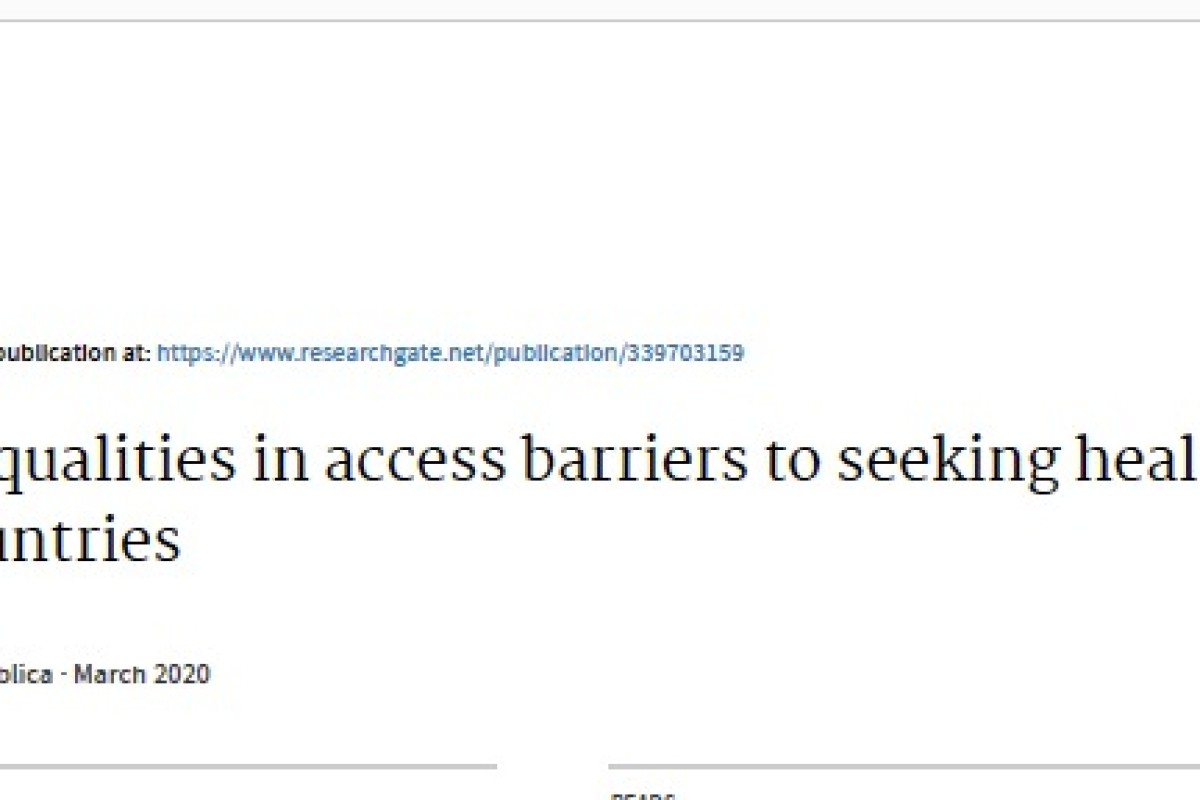Objective. To present summary measures of socioeconomic inequalities in access barriers to health services in Colombia, El Salvador, Paraguay, and Peru.
Methods. This cross-sectional study used data from nationally - representative household surveys in Colombia, El Salvador, Peru, and Paraguay to analyze income-related inequalities in barriers to seeking health services. Households that reported having a health problem (disease/accident) and not seeking professional health care were considered to be facing access barriers. The measures of inequality were the slope index of inequality and relative index of inequality.
Results. Inequality trends were mixed across the four countries. All showed improvement, but large inequality gaps persisted between the highest and lowest income quintiles, despite health care reforms. Relative inequality gaps were highest in Colombia (60%), followed by Paraguay (30%), Peru (20%), and El Salvador (20%).
Conclusions. The effect of national policy initiatives on equity to accessing health services should be the object of future analysis. There is also a need for research on national and regional monitoring of access barriers and explanatory factors for why people do not seek care, even when having a health problem.


